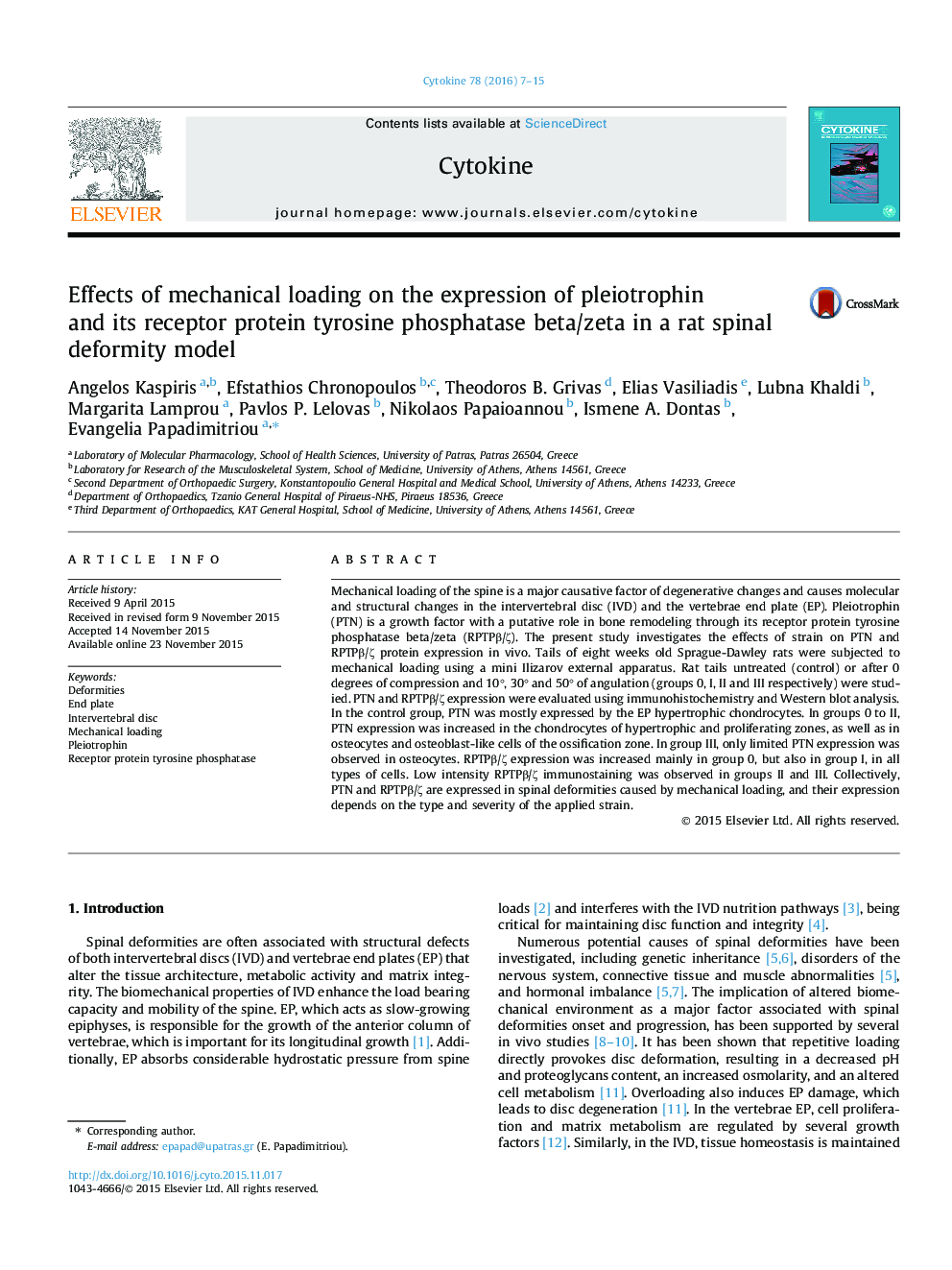| Article ID | Journal | Published Year | Pages | File Type |
|---|---|---|---|---|
| 5896833 | Cytokine | 2016 | 9 Pages |
â¢Spinal expression of the cytokine pleiotrophin (PTN) and its receptor RPTPβ/ζ in a rat deformities model.â¢Increased expression of PTN and RPTPβ/ζ at mild to moderate strain.â¢Moderate PTN and RPTPβ/ζ expression at severe deformity changes.â¢Strain's type and intensity affects the spinal response related to PTN and RPTPβ/ζ expression.
Mechanical loading of the spine is a major causative factor of degenerative changes and causes molecular and structural changes in the intervertebral disc (IVD) and the vertebrae end plate (EP). Pleiotrophin (PTN) is a growth factor with a putative role in bone remodeling through its receptor protein tyrosine phosphatase beta/zeta (RPTPβ/ζ). The present study investigates the effects of strain on PTN and RPTPβ/ζ protein expression in vivo. Tails of eight weeks old Sprague-Dawley rats were subjected to mechanical loading using a mini Ilizarov external apparatus. Rat tails untreated (control) or after 0 degrees of compression and 10°, 30° and 50° of angulation (groups 0, I, II and III respectively) were studied. PTN and RPTPβ/ζ expression were evaluated using immunohistochemistry and Western blot analysis. In the control group, PTN was mostly expressed by the EP hypertrophic chondrocytes. In groups 0 to II, PTN expression was increased in the chondrocytes of hypertrophic and proliferating zones, as well as in osteocytes and osteoblast-like cells of the ossification zone. In group III, only limited PTN expression was observed in osteocytes. RPTPβ/ζ expression was increased mainly in group 0, but also in group I, in all types of cells. Low intensity RPTPβ/ζ immunostaining was observed in groups II and III. Collectively, PTN and RPTPβ/ζ are expressed in spinal deformities caused by mechanical loading, and their expression depends on the type and severity of the applied strain.
